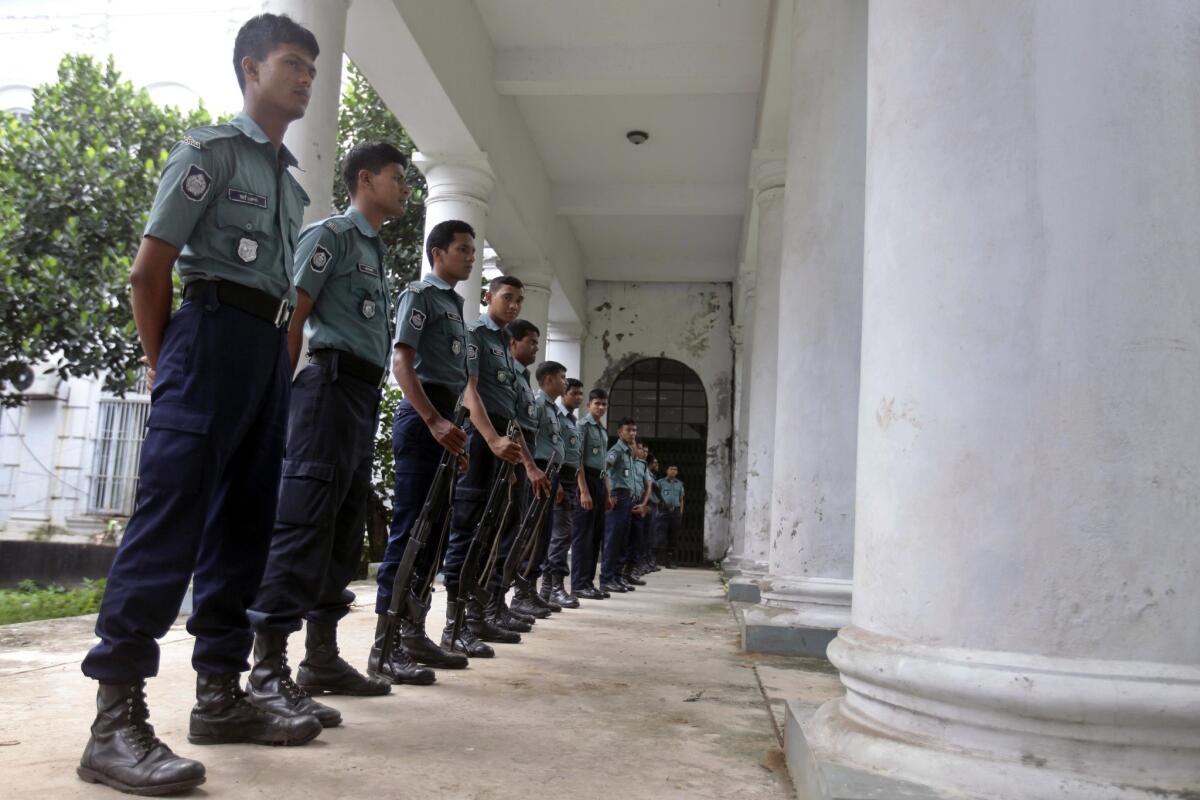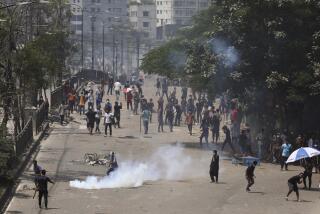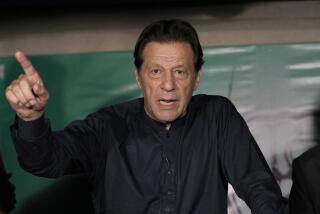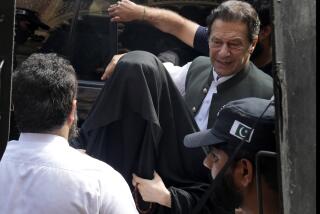Bangladesh opposition leader sentenced to hang in war crimes case

NEW DELHI -- A special Bangladeshi court sentenced a top opposition politician to hang Tuesday after he was found guilty on charges of murder, arson and crimes against humanity linked to the country’s 1971 war of independence against Pakistan.
The ruling prompted police and paramilitary forces to step up security across the country.
The 172-page verdict against Salauddin Quader Chowdhury of the main opposition Bangladesh Nationalist Party is the sixth death sentence handed down against Islamist opposition leaders by a special war crimes tribunal. A seventh defendant received a sentence of life imprisonment.
Chowdhury, 64, was convicted on nine of 23 charges, including aiding and abetting in the murder of at least 200 people, mostly Hindus, four decades ago. The standing committee member of the Bangladesh Nationalist Party and his father, a key figure in the Muslim League party, supported Pakistan in the brutal conflict, although Chowdhury denies committing any crimes.
Family members vowed Tuesday to appeal the decision. “We will do whatever we need to do to show the world that this is a farce,” Chowdhury’s wife, Farhat Quader Chowdhury, told reporters outside the packed courthouse in Dhaka.
Shortly after the verdict was announced, Chowdhury supporters reportedly set fire to several motorcycles owned by ruling-party activists who were out celebrating the ruling in the southeastern port city of Chittagong, which has elected Chowdhury to Parliament six times. The Bangladesh Nationalist Party also called for a general strike in Chittagong on Wednesday to protest the verdict, as authorities braced for more violence.
“There are deep divisions in Bangladesh society,” said Bobby Hajjaj, a business consultant and newspaper columnist. “There’s a minority that want the trials to go ahead. The majority don’t care either way about the trials themselves, but are concerned about the political strife that’s resulted.”
“So far, we haven’t seen a lot of violence,” he said. “But we’ll have to see what happens.”
The tribunal is not recognized by the United Nations, and human rights groups have criticized it for not following international standards. The government, which campaigned on a pledge to hold the trials, sees the proceedings as a way to bring closure to a brutal period in the nation’s history. The opposition sees them as a political vendetta in advance of January elections.
Over 100 people have been killed in demonstrations linked to war-crimes verdicts over the past nine months. Last month, after Jamaat-e-Islami party leader Abdul Kader Mullah was sentenced to hang, violent demonstrations broke out for and against the verdict.
Atty. Gen. Mahbubey Alam told journalists outside the court Tuesday that Chowdhury received the death sentence in four murder and genocide cases, 20-year jail sentences in three cases and five-year prison sentences in two cases.
The Bangladeshi government says Pakistani soldiers and local collaborators killed about 3 million people and raped 200,000 women during a nine-month war in 1971. Other researchers place the number of deaths at between 300,000 and 500,000.
Of the six people convicted of war crimes by the tribunal, four are top officials of Jamaat-e-Islami, the country’s main Islamic party, one is a former party chief and one an expelled party member.
Chowdhury was found guilty Tuesday by the three-judge tribunal of ordering the abduction of seven Hindus in April 1971, six of whom were tortured to death at the family’s residence in Chittagong’s Good Hills neighborhood. He was also found guilty of genocide, crimes against humanity, complicity, looting, arson and deportation in various other cases, most of which involved leading Pakistani troops to his victims.
In one case, two accomplices were found guilty of leading Hindus to a courtyard on the pretext of attending a “peace meeting.” Once there, the Hindus were reportedly fired on, killing 32. The house was then burned, presumably to destroy the evidence.
ALSO:
Israel’s Netanyahu urges Obama to maintain Iran sanctions
Popes John Paul II, John XXIII to be canonized together in April
Amanda Knox’s retrial begins in Italy; court orders new test on knife
More to Read
Sign up for Essential California
The most important California stories and recommendations in your inbox every morning.
You may occasionally receive promotional content from the Los Angeles Times.










